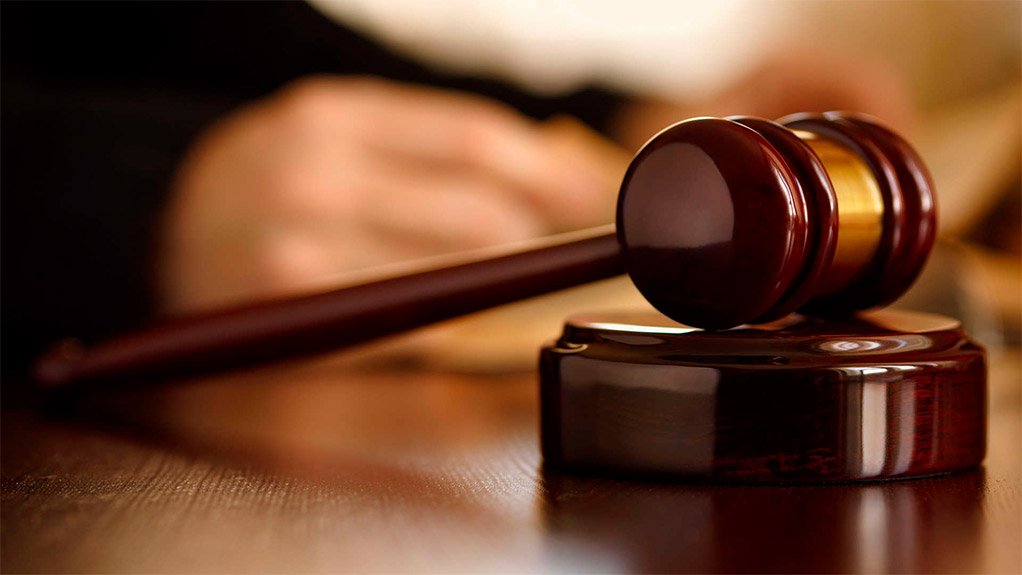/ MEDIA STATEMENT / The content on this page is not written by Polity.org.za, but is supplied by third parties. This content does not constitute news reporting by Polity.org.za.
“Victory for justice and the rule of law and the people of South Africa”, is how Makoma Lekalakala of Earthlife Africa Johannesburg (ELA-JHB) summed up the court judgement.
After over a year and a half of court preparation for justice, ELA-JHB and the Southern African Faith Communities’ Environment Institute (SAFCEI) were finally able to block the unlawful and unconstitutional actions of the South African government in its nuclear deal.
The Western Cape High Court delivered its judgement this morning in the nuclear deal court case brought by ELA-JHB and SAFCEI against the South African government on the eve of Freedom Day and on the anniversary of the Chernobyl nuclear disaster. The timing of the judgement, before this important day in South Africa’s history and on the day of the nuclear disaster in Russia, adds to the sense of justice being done.
“Along the road to the courts, we experienced delays and dirty tricks, but we perservered and now we have been vindicated. The court has found in our favour”, said Liz McDaid, SAFCEI spokesperson.
The judges ruled that the secret tabling of the Intergovernmental Agreements (IGA) with Russia, USA and Korean are unconstitional and unlawful and that they be set aside. They also ruled that the decisions made (section 34 determinations) to procure nuclear are unlawful and unconstitutional and that they be set aside. The government and Eskom’s proposed procurement of nuclear energy was ruled unlawful and unconstitutional and was set aside, and any existing requests for proposals from nuclear energy providers have also been set aside, meaning they are made null and void.
The government has to pay the costs of the court case as well as the other legal costs incurred by SAFCEI and ELA JHB. And the judges declared that the government’s decision (section 34 determination) must have public participation as a part of its procurement process, and that Eskom as the procurer has been set aside, which means Eskom cannot go ahead with the nuclear procurement. In future the Minister and/or the National Energy Regulator (NERSA) would be required to conduct public participation before making any new decisions.
According to SAFCEI’s Liz McDaid: “SAFCEI and ELA-JHB based their case on the South African Constitution, which states that when it comes to far-reaching decisions, such as the nuclear deal, which would alter the future of our country, government is legally required to debate in Parliament and do a thorough, transparent and meaningful public consultation.”
Vainola Makan of Western Cape Right to Know (R2K) campaign says, “This contravention of the Constitution is the main reason that ELA-JHB and SAFCEI have taken the government to court. R2K supported this legal action as we need our democratically elected government to be transparent in their dealings and accountable to citizens for their choices.”
A lot has happened in the two months since the final arguments were heard in the nuclear court case in February 2017. The President’s late-night cabinet reshuffle at the end of March has spurred countrywide marches and a vote of no confidence is looming. Many more discrepancies have since been reported, with the nuclear deal being in the spotlight in the latest crises in political leadership.
SAFCEI founder and Patron, the Green Bishop, Geoff Davies says, “We are very pleased with the result. However, it may only provide a short-lived reprieve. It is sad to hear fresh corruption allegations almost daily, and as custodians for the Earth, we pray that our country’s leaders will be convicted by their conscience to do the right thing, for all SA’s citizens.”
SAFCEI youth ambassador, Siphokazi Pangalele says, “We are so glad for the result, but it is clear that we still have a lot of work ahead of us. In the past few weeks citizens have demonstrated their willingness to mobilise against corruption and the capture of our State. The nuclear deal is at the centre of it all.”
According to Adrian Pole, legal representative for ELA-JHB and SAFCEI: “The judgement means that there is no decision in terms of the relevant empowering statute that new nuclear generation capacity is needed and should be procured. The Russian agreement has been declared unlawful and unconstitutional for its tabling. Before any nuclear procurement can proceed, the Minster of Energy (in concurrence with NERSA) will be required to make a new determination in accordance with a lawful process that is transparent and includes public participation. This will necessarily require disclosure of relevant information that to date has been kept from the public, including critical information on costs and affordability.”
In November 2016, a coalition campaign to stop the nuclear deal was initiated by Kumi Naidoo, ELA-JHB and SAFCEI, who have been joined by many other organisations and citizens across a broad spectrum of interests. From social grants, to large corporates, from jobs, to environmental health and our collective energy future - this issue affects us all.
“The organisations and citizens who are motivated by a demand for a just energy transition to sustainable energy are planning to launch an even bigger campaign soon to ensure this judgement is only the start of people holding the government to account on its energy deals,” added Makoma Lekalakala of ELA-JHB.
Issued by SAFCEI
EMAIL THIS ARTICLE SAVE THIS ARTICLE ARTICLE ENQUIRY
To subscribe email subscriptions@creamermedia.co.za or click here
To advertise email advertising@creamermedia.co.za or click here











